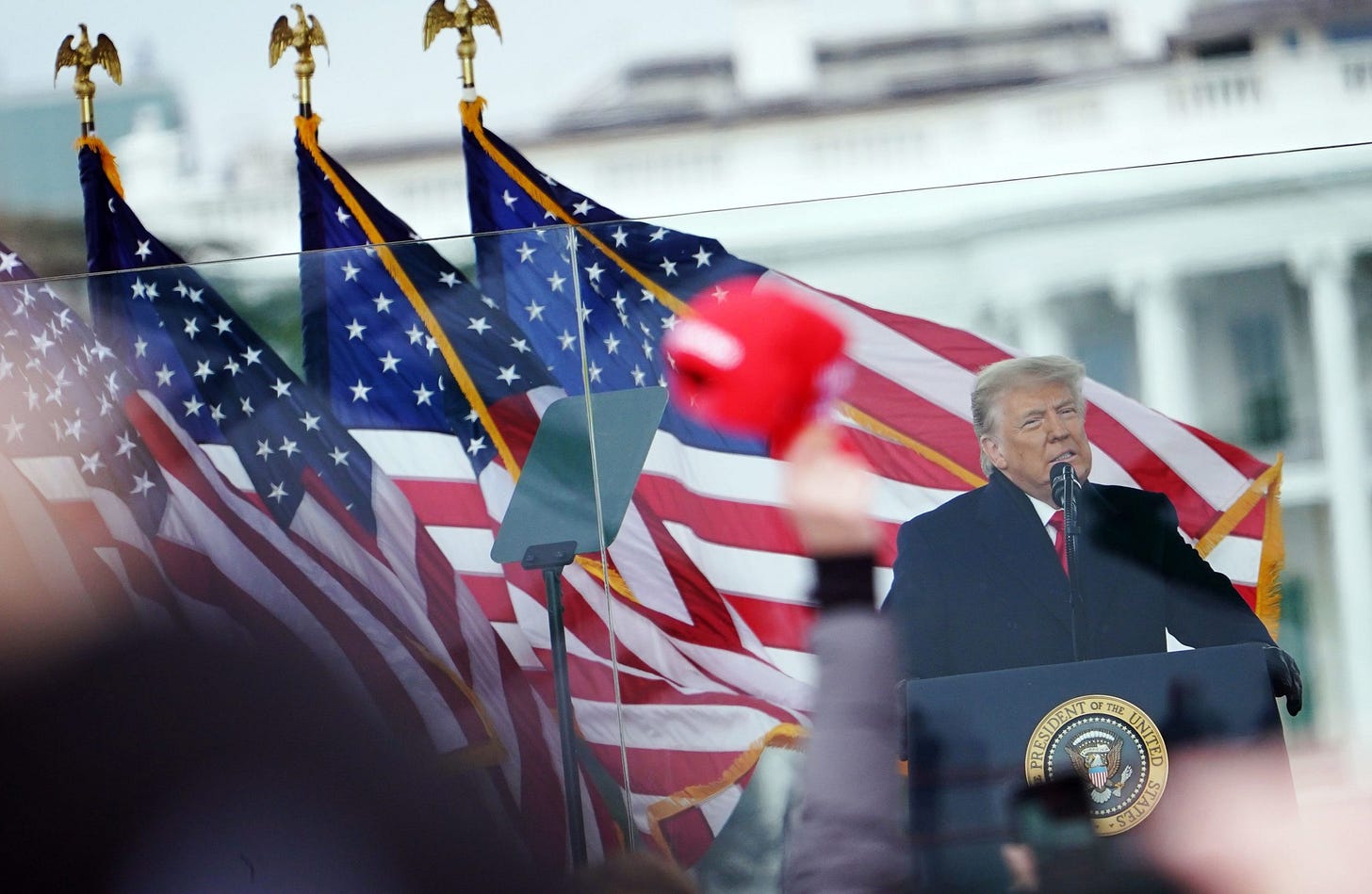Trump’s Inexcusable Jan. 6th “Dereliction of Duty”
He failed to fulfill to the responsibilities of his office.

Over the past several weeks, as more facts have emerged about former President Donald Trump’s actions and inaction on January 6, 2021, commentators have repeatedly referred to his “dereliction of duty.” A spokesman for the House January 6th Committee told reporters earlier this month that the committee had collected testimony about Trump’s “supreme dereliction of duty”; the committee’s vice chair, Rep. Liz Cheney, has often used the phrase “dereliction of duty” to describe Trump’s actions on that day; and other members of the committee are describing the hearing planned for this week as one that will focus on Trump’s “dereliction of duty.” “Dereliction of duty” is a serious accusation, and based on what has already emerged in the committee’s hearings, one that fits. Without even getting into what Trump did before Jan. 6th, it is beyond question that he was aware in real time of the violence at the Capitol, that he could have given orders to quell the disorder, that he did nothing for hours on end to call off the mob he had helped to summon, and that he had only kind things to say to his violent supporters. Given every American president’s constitutional obligation to “take care that the laws be faithfully executed,” there is no escaping the fact that Trump was derelict.
Dereliction of duty is recognized as a crime in some state laws, such as an Ohio statute governing law enforcement personnel, but no general federal law makes it a crime. There is, however, a robust body of dereliction of duty law in the armed forces. Since the president is commander in chief, there is some justice in invoking the concept, even though Trump was never subject to military law, either before or during his time in office. The Manual for Courts-Martial sets forth the elements of the offense of “dereliction in the performance of duties.” The first three apply across the board:
(a) that the accused had certain duties; (b) that the accused knew or reasonably should have known of the duties; and (c) that the accused, willfully or through neglect or culpable inefficiency, failed to perform those duties.
A fourth element applies where the dereliction of duty resulted in death or grievous bodily harm:
(d) that such dereliction of duty resulted in death or grievous bodily harm to a person other than the accused.
The manual elaborates:
A person is derelict in the performance of duties when that person willfully or negligently fails to perform that person’s duties or when that person performs them in a culpably inefficient manner. “Willfully” means intentionally. It refers to the doing of an act knowingly and purposely, specifically intending the natural and probable consequences of the act. “Negligently” means an act or omission of a person who is under a duty to use due care which exhibits a lack of that degree of care which a reasonably prudent person would have exercised under the same or similar circumstances. Culpable inefficiency is inefficiency for which there is no reasonable or just excuse.
The manual also provides that “where the dereliction of duty resulted in death or grievous bodily harm, the intent to cause death or grievous bodily harm is not required.” Dereliction can be a serious offense in the armed forces. The maximum punishment turns on whether the conduct was willful, negligent, or the result of culpable inefficiency. Importantly, for willful dereliction that results in death or grievous bodily harm, confinement for up to two years is authorized. Had Trump been subject to the Uniform Code of Military Justice, there would be no question that his actions and failures to act on Jan. 6th rose to the level of willful dereliction. And there were fatalities and grievous bodily injuries at the Capitol that day.
Setting aside technical definitions of dereliction of duty, even its broader, colloquial sense—someone’s failure to perform an action it was his responsibility to perform—is now no longer the main point. It could have formed the basis for an impeachment, but Trump is no longer subject to impeachment. Indeed, he escaped his last impeachment, coming as it did so close to the end of his term, in part because some thought his misconduct could be adjudicated in criminal and civil proceedings. (“President Trump is still liable for everything he did while he was in office,” Mitch McConnell said. “We have a criminal justice system in this country. We have civil litigation.”) Even so, reference to dereliction of duty in connection with Jan. 6th is quite understandable. It contributes to our understanding of just how grave a betrayal Donald Trump’s behavior represented. It may go to his intent, and it would certainly be taken into account on sentencing in the event he is criminally charged in connection with the assault on the Capitol. Particularly as the Jan. 6th Committee trains its sights this week on his conduct during that assault, it is worth keeping in mind, if only for contextual reasons as the Department of Justice, state prosecutors in Georgia and perhaps elsewhere, and Americans generally, make the critical decision whether he should face criminal charges.




